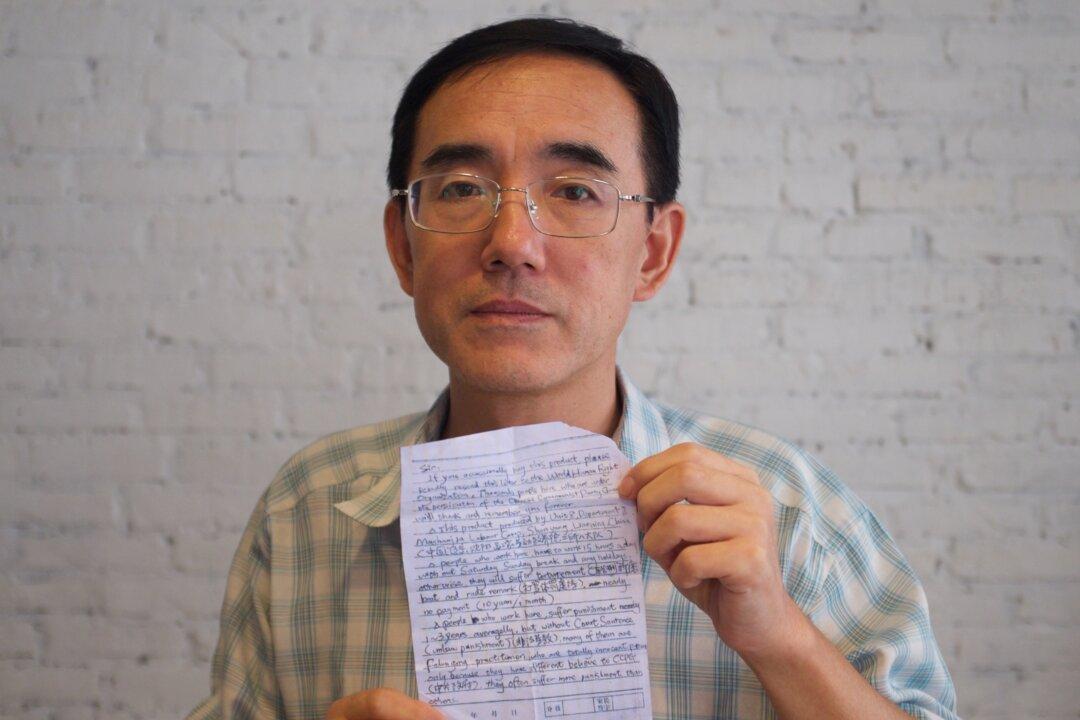OTTAWA—The award-winning documentary “Letter from Masanjia” moved viewers to tears at Bytowne Cinema on Sept. 3. A true story that changed history in China, it tells of a man’s extraordinary courage and hope despite the unimaginable horror he endured as a prisoner in a Chinese forced labour camp.
What also hit close to home was the film’s exposé of the human suffering behind products produced by forced labour in Chinese prisons that end up on store shelves in countries like Canada and the United States.




